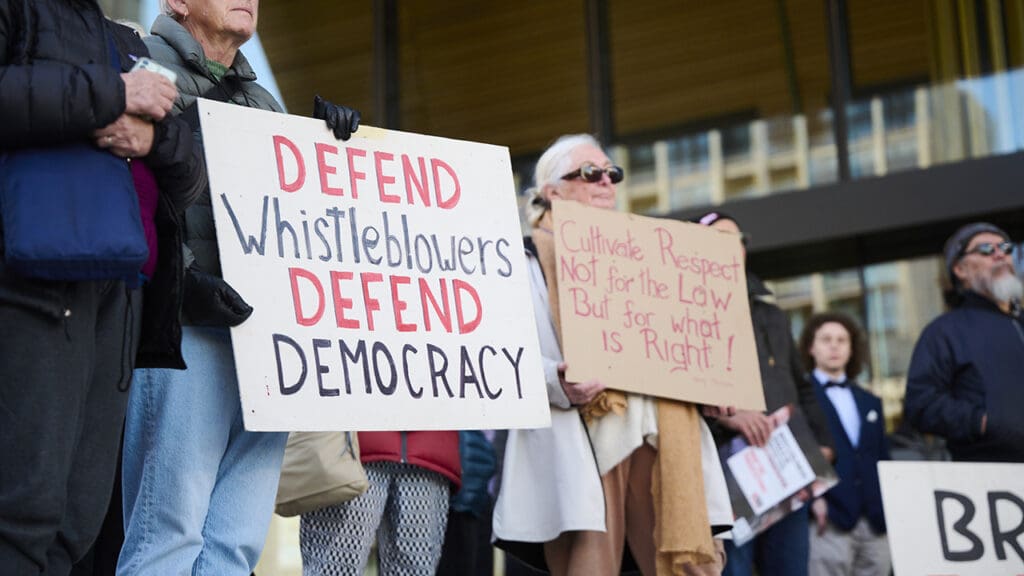Federal Government Can’t Ignore LGBTIQ Women’s Rights
OPINION: This piece was first published in Q News
For too many of us in the LGBTIQ community, we know what it feels like to be mistreated because of who we are or who we love.
We know the humiliation and embarrassment that comes from having someone say that you don’t look or act like you ‘should’.
It doesn’t matter if it happens in the playground, a classroom, the workplace or on the street.
Discrimination strips away your confidence. It drags down on your resilience. It damages your sense of belonging.
This week, the UN Committee on the Elimination of Discrimination against Women handed down a damning report of Australia’s track record on women’s rights, including recommendations to better protect the rights of lesbian, gay, bisexual, trans, intersex and queer people.
Marriage equality and the introduction of federal anti-discrimination protections for LGBTIQ people are positive steps forward that we should celebrate. But we have not achieved LGBTIQ equality.
Australian governments have a responsibility under international law to better protect the fundamental human rights of LGBTIQ women and girls.
Ending Discrimination And Causes Of Violence
The UN criticised the Australian Government for the high rates of discrimination and violence LGBTIQ people face, and the staggering rates of self-harm and suicide this causes.
We need immediate action to overcome discriminatory stereotypes that prevent full inclusion. We need governments and health agencies to address our mental health needs, ensure access to non-discriminatory health services, and create safer and more inclusive learning environments.
Children need inclusive learning environments and curriculum to concentrate in class and reach their full potential. Patients need medical professionals to treat them with dignity and respect to have confidence that they’re receiving high quality healthcare.
End Unnecessary Medical Interventions On Intersex Children
The UN highlighted the “harmful practice” of medically unnecessary surgeries on intersex infants and children – being performed right now in Australian hospitals. This should never be done before someone is old enough to provide free, prior and informed consent.
Every single one of us has a right to decide what happens to our own body. Yet intersex people’s voices have too often been ignored.
The UN called on the Australian Government to implement the recommendations of the 2013 Senate inquiry on involuntary or coerced sterilisation of intersex people, and adopt legislation prohibiting unnecessary medical treatment on intersex children. For 5 long years, there has been no real action from the Senate inquiry to protect intersex people’s rights to bodily integrity and autonomy.
Law reform on its own is not enough. We need our governments to provide adequate counselling and support for families, an apology and compensation for intersex people whose human rights have been violated.
Trans Equality In Accessing Identification
This week, the UN called on Australian governments to abolish unnecessary legal barriers to changing your legal gender. The UN is spot on – this is about the right to bodily integrity, autonomy and self-determination.
Everyone deserves to have ID that reflects their identity. A birth certificate is the first document you ever receive. It says who you are, who you’re related to, and where you belong.
For most people, updating their birth certificate is actually really simple. People do it all the time when they change their name. But for trans or gender diverse people, updating your birth certificate so it correctly reflects your gender can be almost impossible.
There may come a time when our society recognises that our ID doesn’t need to record gender. But until that happens, being forced to use ID that doesn’t match your identity creates daily problems for trans and gender diverse people when applying for a job, going to Centrelink or enrolling to study.
The Australian Government has a responsibility to implement the UN’s recommendations and report back in 4 years. In that time, we can’t let the Turnbull Government ignore the rights of LGBTIQ people. The No campaign’s attacks on the LGBTIQ community during the marriage equality campaign reminded us of the devastating impact of discrimination, and our responsibility to do everything we can to fight against this prejudice.

What issue unites Coalition, Labor, Green, teal and One Nation voters? Whistleblower protections
The Albanese Government’s persecution of whistleblowers Richard Boyle and David McBride is unjust, and the public doesn’t support it. It’s time for much-needed reform.
Read more
We’re fighting Tasmania’s parole board gag on free speech
We have filed legal proceedings on behalf of Tasmanian grandmother, Susan Neill-Fraser. Her case challenges a restrictive parole condition placed on her by the Parole Board of Tasmania which limits her ability to speak to the media.
Read more
Universities must stop restricting protests and surveilling staff and students
The Human Rights Law Centre is urging the University of Melbourne to abandon new policy changes that severely restrict protest rights and allow widespread surveillance of students and staff through the universities’ wifi network.
Read more


